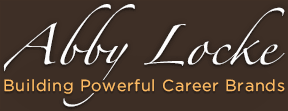
Just two evenings ago, I had a lively discussion with my sister and cousin about careers and the behaviors and strategies we employ as women that sometimes help us or hurt us in the long run.
One common challenge that always seems to come up is our behaviors around self-marketing and self-promotion.
Are you one of those professionals who believes in hard work and going the extra mile, but get very uncomfortable when it comes to “selling” what you have achieved or contributed to the company?
Now, by no means am I suggesting that you alter your personality, become egotistical or randomly talk about yourself to any who would listen.
However, here are 7 strategies and tactics to consider when talking about your value in any meeting, performance appraisal discussion, job interview or networking setting.
- Talk less about the tasks or steps and more about the impact and the difference your actions made – go ahead and tell a great story, but make sure it covers the challenges, your actions and the results.
- Share your goals and the methods you use to measure your progress and success – it’s one thing to say I am taking Toastmasters and public speaking classes.
– Think of the bigger impression you can make if that story highlights how your new skills have helped become a more valuable, effective contributor to your company.
- Put a positive spin on your activities and results – there are always going to be successes and learning experiences when you take on a new project or initiative.
Focus on what goals were met, what you are most proud of and have a candid discussion on what you might do differently the next time around.
- Use numbers not words to make an impression – if you implemented a new strategy or you are recommending a new strategy, don’t say words like “significant”, “a lot”, “a huge amount” – do your homework and be specific about the projected results.
– It’s more powerful to say “Based on my research and calculations, I estimate that we can save more than $200K in the next quarter”.
- Speak with confidence around your growth areas – don’t frame your “weaknesses” as pieces of you that are broken and beyond fixing; use language like “I am interested in strengthening and honing my public speaking skills.
– What internal opportunities, projects or assignments would be effective in helping me achieve that goal?
- Don’t wait for feedback, ask for it – too often, professionals grind away for a year and then hold their breath and fingers when it comes performance appraisal time.
– Wrong strategy! Solicit feedback, recommendations and support from your manager and colleagues in an informal way through out the year, so you have more opportunities to adjust your efforts and input more frequently.
- Pay close attention to your words – there are times you can sabotage your verbal messages without knowing. Talk about what you “can do” not what you “cannot” do; discuss what you “want” not what you “don’t want”; share solutions that you “support” and don’t focus on what you “oppose”.
Words, more importantly your words make a difference!
Which of these strategies ring a bell with you?




